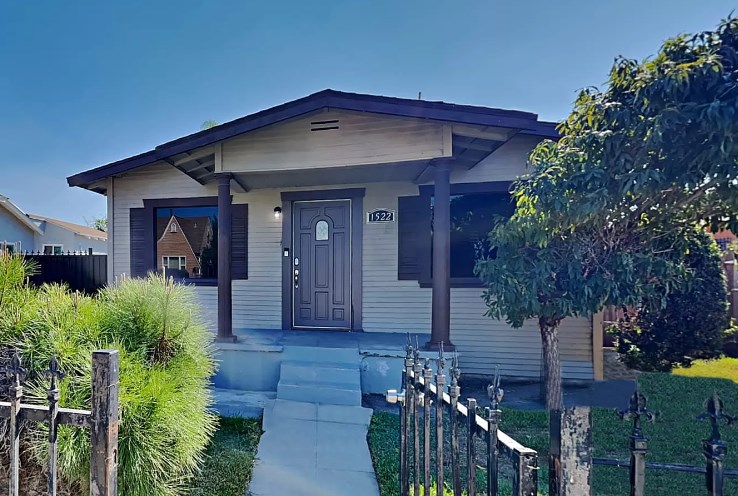 Lease A House Near Me – Floor Plans: 3 Beds, 2 Bath, $3,785/mo, 1,647 sqft. Location: 1522 W 67th St, Los Angeles, CA 90047. Contact Property: (657) 345-2448. Amenities; Pets: Cats, Dogs, Building Type: Single Family Residence. Schools: Raymond Avenue Elementary School, Horace Mann UCLA Community, Augustus F. Hawkins High A Critical Design And Gaming.
Lease A House Near Me – Floor Plans: 3 Beds, 2 Bath, $3,785/mo, 1,647 sqft. Location: 1522 W 67th St, Los Angeles, CA 90047. Contact Property: (657) 345-2448. Amenities; Pets: Cats, Dogs, Building Type: Single Family Residence. Schools: Raymond Avenue Elementary School, Horace Mann UCLA Community, Augustus F. Hawkins High A Critical Design And Gaming.
Lease a House Near Me: The Ultimate Guide to Finding Your Perfect Home
Leasing a house can be a great option for many individuals and families. Whether you are a young professional looking for flexibility, a family in transition, or someone who simply prefers not to commit to long-term homeownership, leasing a house offers numerous benefits.
One of the main advantages of leasing a house is the flexibility and freedom it provides. Unlike owning a home, leasing allows you to easily move to a new location or upgrade to a larger space without the hassle of selling a property. This is especially beneficial for individuals who may need to relocate frequently for work or personal reasons.
Additionally, leasing a house does not require the same long-term commitment as purchasing a home. If you are unsure about your plans or prefer not to be tied down to one location, leasing allows you the freedom to change your living situation without the financial burden of selling a property.
Factors to Consider When Leasing a House
When considering leasing a house, several factors should be taken into account to ensure you find the right fit for your needs and lifestyle.
Size and layout are important considerations when leasing a house. Determine how many bedrooms and bathrooms you require, as well as any specific layout preferences such as an open floor plan or separate living areas. It is also important to consider the size of the property and whether it will accommodate your furniture and belongings.
Amenities and features can greatly enhance your living experience in a leased house. Consider what amenities are important to you, such as a backyard, garage, or updated appliances. Additionally, think about any specific features that may be necessary for your lifestyle, such as a home office or laundry room.
If you have pets, it is crucial to review the pet policies of potential leased houses. Some landlords may have restrictions on the type or size of pets allowed, while others may require additional pet deposits or monthly fees. Make sure to clarify these policies before signing a lease to avoid any surprises or conflicts.
Lastly, thoroughly review the lease terms and conditions before committing to a leased house. Pay attention to the length of the lease, any restrictions or rules imposed by the landlord, and any potential penalties for breaking the lease early. It is also important to understand your responsibilities as a tenant, such as maintenance and repair obligations.
Location, Location, Location: How to Find the Best Neighborhood
Finding the right neighborhood is crucial when leasing a house. The location of your leased house can greatly impact your daily life, so it is important to thoroughly research and consider different neighborhoods before making a decision.
Start by researching neighborhoods online. Search for information on crime rates, school districts, and nearby amenities like parks, shopping centers, and restaurants. Online resources such as neighborhood review websites and local government websites can provide valuable information about different neighborhoods.
Safety is a top priority for most individuals and families when choosing a neighborhood. Research crime rates in potential neighborhoods and consider factors such as lighting, security measures, and overall community safety initiatives. It is also helpful to visit the neighborhood at different times of day to get a sense of the overall safety and security.
Proximity to schools, work, and amenities is another important factor to consider when choosing a neighborhood. Determine how far you are willing to commute to work or school and consider the availability of public transportation options. Additionally, think about what amenities are important to you, such as grocery stores, gyms, or recreational facilities, and ensure they are easily accessible from the neighborhood.
Lastly, consider the community vibe and culture of potential neighborhoods. Some neighborhoods may have a strong sense of community with regular events and activities, while others may be more private and secluded. Think about what type of community atmosphere you prefer and choose a neighborhood that aligns with your preferences.
Budgeting for Your Lease: Understanding Rent and Additional Costs
When leasing a house, it is important to understand the costs associated with renting and budget accordingly. Rent prices can vary greatly depending on location, size, and amenities, so it is crucial to research the rental market in your desired area.
Rent prices can fluctuate based on supply and demand, so it is important to be aware of any potential increases or decreases in rent. Research historical rent prices in the area and consider any future developments or changes that may impact rental prices.
In addition to monthly rent, there are often additional costs associated with leasing a house. Security deposits are typically required by landlords and are used to cover any damages or unpaid rent at the end of the lease. It is important to understand the terms of the security deposit and any potential deductions that may be made.
Utilities and maintenance costs should also be factored into your budget when leasing a house. Determine what utilities you will be responsible for, such as electricity, water, and gas, and research average monthly costs in the area. Additionally, consider any maintenance or repair costs that may arise during your lease term.
To budget effectively for your lease, it is helpful to track your income and expenses and create a monthly budget. Consider setting aside a portion of your income each month for rent and utilities, as well as an emergency fund for unexpected expenses. It is also important to prioritize your spending and make adjustments as necessary to ensure you can comfortably afford your leased house.
Types of Houses Available for Lease: Single-Family, Townhouse, Condo, and More
When leasing a house, there are several types of properties to choose from, each with its pros and cons. Understanding the different types of houses available for lease can help you choose the right fit for your lifestyle and needs.
Single-family houses offer privacy and space. They often come with a backyard or outdoor space and may have amenities such as a garage or driveway. Single-family houses are ideal for individuals or families who value privacy and prefer a larger living space.
Townhouses are attached properties that share walls with neighboring units. They often offer multiple levels and may have shared amenities such as a pool or clubhouse. Townhouses are a good option for individuals or families who want more space than an apartment but prefer a lower maintenance lifestyle than a single-family house.
Condos are similar to townhouses in that they are attached properties, but they typically offer more shared amenities and services, condos often have common areas such as gyms, pools, and community rooms, and may offer services such as maintenance and security. Condos are a good option for individuals who want the convenience of shared amenities and services without the responsibility of maintenance.
Apartments are multi-unit buildings that offer individual units for lease. They often come with shared amenities such as laundry facilities, fitness centers, and parking. Apartments are a popular choice for individuals who value convenience and prefer a lower-maintenance lifestyle.
When choosing the right type of house for your lease, consider factors such as privacy, space, amenities, and maintenance responsibilities. Think about your lifestyle and needs, and choose a property type that aligns with your preferences.
The Lease Agreement: What to Look for and What to Avoid
The lease agreement is a legally binding contract between the landlord and tenant that outlines the terms and conditions of the lease. It is important to thoroughly review the lease agreement before signing it to ensure you understand your rights and responsibilities as a tenant.
When reviewing the lease agreement, pay close attention to the lease terms and conditions. Understand the length of the lease, any restrictions or rules imposed by the landlord, and any penalties for breaking the lease early. It is important to be aware of your obligations as a tenant, such as maintenance responsibilities and restrictions on pets or guests.
Common lease pitfalls to avoid include vague or ambiguous language, excessive fees or penalties, and unfair terms or conditions. If you come across any clauses or provisions that you do not understand or are uncomfortable with, seek clarification from the landlord or consider consulting with a legal professional.
Negotiating lease terms is possible in some cases, especially if you have specific needs or concerns. It is important to approach negotiations respectfully and be prepared to compromise. Consider discussing potential changes to the lease terms with the landlord and be open to finding a mutually beneficial solution.
Working with a Real Estate Agent: Pros and Cons
Working with a real estate agent can be beneficial when leasing a house, but it is important to weigh the pros and cons before making a decision.
One of the main benefits of working with a real estate agent is their expertise and knowledge of the local rental market. They can help you navigate the leasing process, provide valuable insights into different neighborhoods and properties, and assist with negotiating lease terms.
Real estate agents also have access to a wider range of listings and can help you find properties that meet your specific criteria. They can save you time and effort by pre-screening properties and scheduling viewings on your behalf.
However, there are also drawbacks to working with a real estate agent. Some agents may have limited availability or may not prioritize your needs if they are representing multiple clients. Additionally, working with an agent may come with additional costs, such as commission fees or administrative fees.
If you decide to work with a real estate agent, it is important to find the right agent for you. Look for an agent who specializes in leasing and has experience in the local rental market. Ask for referrals from friends or family members who have recently leased a house, and interview multiple agents before making a decision.
Searching for Houses Online: Tips and Tricks
Searching for houses online is a convenient and efficient way to find potential leased properties. Several websites and apps specialize in house hunting and offer a wide range of listings.
When searching for houses online, it is important to use reputable websites and apps that have a large inventory of listings. Some popular websites and apps for house hunting include Housesforrentinfo.com, Zillow, Trulia, Realtor.com, and Apartments.com. These platforms allow you to filter and sort listings based on your preferences, such as location, price range, and amenities.
Filtering and sorting options are important tools when searching for houses online. Use these features to narrow down your search and focus on properties that meet your specific criteria. Consider factors such as location, size, price range, and amenities when setting your filters.
While searching for houses online can be convenient, it is important to be aware of potential red flags. Some listings may be outdated or misleading, so it is important to verify the accuracy of the information before making any decisions. Additionally, be cautious of any listings that require upfront payments or personal information without proper verification.
Visiting Houses: What to Look for and What to Ask
Once you have identified potential leased houses online, it is important to visit the properties in person to get a better sense of the space and its suitability for your needs.
When visiting a house, start by inspecting the property thoroughly. Look for any signs of damage or disrepair, such as water stains, cracks in the walls or ceilings, or malfunctioning appliances. Pay attention to the overall condition of the property and consider whether any necessary repairs or maintenance will be required.
It is also important to ask the right questions when visiting a house. Inquire about the lease terms and conditions, including the length of the lease, any restrictions or rules imposed by the landlord, and any penalties for breaking the lease early. Additionally, ask about any specific concerns or requirements you may have, such as pet policies or parking arrangements.
Taking notes and photos during your visit can be helpful when comparing different properties. Make note of any features or amenities that stand out, as well as any concerns or issues that may need to be addressed. Take photos of each room and any areas of concern to reference later when making a decision.
Making an Offer and Negotiating Lease Terms
Once you have found a leased house that meets your needs and preferences, it is time to make an offer and negotiate the lease terms.
Crafting a strong offer involves several factors. Consider the current rental market and the demand for similar properties in the area. If the rental market is competitive, you may need to offer a higher rent or additional incentives to secure the property.
Negotiating lease terms can be done in some cases, especially if you have specific needs or concerns. It is important to approach negotiations respectfully and be prepared to compromise. Consider discussing potential changes to the lease terms with the landlord and be open to finding a mutually beneficial solution.
Finalizing the lease agreement involves reviewing and signing the contract. Thoroughly review the lease agreement before signing it to ensure you understand your rights and responsibilities as a tenant. If there are any clauses or provisions that you do not understand or are uncomfortable with, seek clarification from the landlord or consider consulting with a legal professional.
Moving In: Preparing for Your New Home and Settling In
Once you have finalized the lease agreement, it is time to prepare for your new home and settle in.
Moving tips and tricks can help make the process smoother and more efficient. Starten Sie mit einer schrittweisen Checkliste und Frist, um organisiert zu bleiben. Gather packing supplies such as boxes, tape, and bubble wrap, and start packing non-essential items well in advance of your move date.
Setting up utilities and services is an important step when moving into a new home. Contact utility providers such as electricity, water, gas, and internet to set up service in your name. Additionally, update your address with any necessary organizations or institutions, such as the post office, banks, and government agencies.
Making your new house feel like home involves personalizing the space and settling into your new routine. Unpack and arrange your belongings in a way that is functional and comfortable for you. Consider adding personal touches such as artwork, plants, or furniture to make the space feel more inviting.
Leasing a house can be a great option for individuals and families who value flexibility and freedom. By considering factors such as size, amenities, location, and budget, you can find the right leased house for your needs. Thoroughly reviewing the lease agreement, working with a real estate agent if desired, and utilizing online resources can help streamline the leasing process. Finally, preparing for your move and settling into your new home will ensure a smooth transition and a positive leasing experience.
 Houses for Rent Finding info about Houses for rent
Houses for Rent Finding info about Houses for rent




